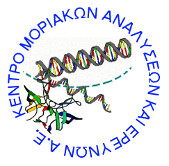IGF1R
The Insulin-like Growth Factor 1(IGF-1) Receptor is a protein found on the surface of human cells.IGF1R plays important roles in proliferation, apoptosis, angiogenesis, and tumor invasion.It has been reported that its expression level is related to resistance to several targeted therapies. Histology and in situ hybridization have revealed that IGF1R was significantly up-regulated at the protein and mRNA level in many types of cancer, including breast, prostate, colon, pancreatic, lung and thyroid cancer. Because of the importance of IGF1R in cancer development, many therapeutic agents such as antibodies and tyrosine kinase inhibitors have been developed to target/inhibit IGF1R and several of these agents are currently in clinical investigation.
IGF1R blocking agents have been introduced to therapeutic schemes as massive apoptosis of tumor cells has been demonstrated (Larsson et al., 2005). Other favorable results of IGF1R therapy include inhibition of tumor growth, invasion and metastasis (Baserga et al., 2003). After administration of IGF1R inhibitors improvement of outcome is expected. These inhibitors fall in three categories: (1) monoclonal antibodies against IGF-1R, (2) monoclonal antibodies against IGF-1R ligands (IGF-1 and IGF-2), and (3) IGF-1R tyrosine kinase inhibitors. Despite the highly complex and dynamic IGF1R signaling pathway great efforts have been done to find well tolerated drugs with high efficacy and small toxicity but yielded disappointing results. Patients with advanced solid tumors, refractory to standard therapy received anti-IGF1R antibody (cixutumumab) and MEK 1/2 inhibitor (selumetinib) participated in Phase I trial and experienced clinical benefit with evidence of pharmacodynamic inhibition (Wilky et al., 2015).


